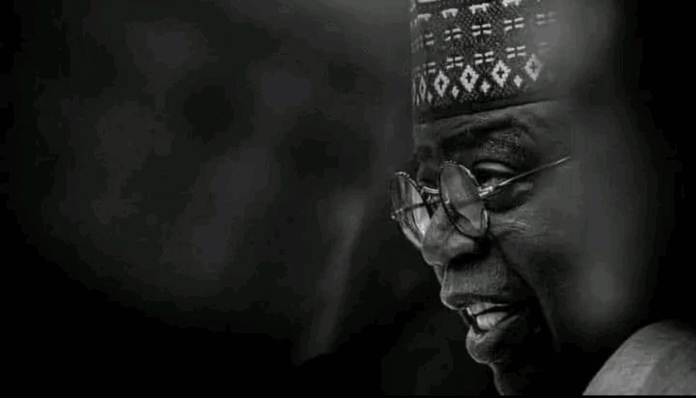The Nigerian authorities’ shocking failure to protect lives and property from daily attacks by armed groups and bandits has cost thousands of lives and created a potential humanitarian crisis across many northern states, said Amnesty International.
A new investigation shows that, in the two years since the current government has been in power, 10,217 people have been killed in attacks by gunmen in Benue, Edo, Katsina, Kebbi, Plateau, Sokoto and Zamfara.
Benue accounts for the highest death toll of 6,896, followed by Plateau state, where 2,630 people were killed.
“Today marks exactly two years since President Bola Tinubu assumed office with a promise to enhance security. Instead, things have only gotten worse, as the authorities continue to fail to protect the rights to life, physical integrity, liberty and the security of tens of thousands of people across the country,” said Isa Sanusi, Director of Amnesty International Nigeria.
Sanusi added, “President Tinubu must fulfill his promises to Nigerians and urgently address the resurgence of the nation’s endemic security crisis. The recent escalation of attacks by Boko Haram and other armed groups shows that the security measures implemented by President Tinubu’s government are simply not working.”
In the two years since President Bola Tinubu’s government assumed power, new armed groups have emerged, including Lakurawa in Sokoto and Kebbi, and Mamuda in Kwara, while hundreds of villages have been sacked by gunmen in Benue, Borno, Katsina, Sokoto, Plateau and Zamfara.
Since 29 May 2023, hundreds of people have been killed in rural areas where, our research since 2020 shows, a total absence of governance has given gunmen and criminal groups a free hand to commit atrocities.
Our investigation verified the killing of over 294 people in Katsina state and documented the abduction of 306 people, mostly women and girls, between May 2023 to May 2025.
In Zamfara, attacks have occurred daily, with multiple attacks sometimes taking place in a single day. In the last two years, over 273 people have been killed and 467 people abducted.
Since the beginning of the security crisis, bandits have sacked 638 villages, while 725 villages are under the control of bandits, across 13 local governments of Zamfara.
Maru local government area also witnessed escalating attacks, including one on a mining site at Gobirawar Chali on 24 April 2025, in which over 20 miners were killed. The emergence of Lakurawa opened a new frontier of bloodshed in Kebbi, where at least 70 people were killed in 22 attacks.
The attacks in Benue and Plateau were particularly vicious. During the 3 April attack on Bokkos local government of Plateau state, many people, including children and entire families, were brutally killed.
In Benue, the gunmen ensured that after killing people, they also destroyed boreholes, clinics and schools. During the attacks on communities in Ukum and Logo local government, Amnesty International gathered evidence that grain reserves and places of worship were also destroyed.
Amnesty International’s findings show that all 23 local government areas of Benue State suffered such attacks, with more frequent attacks occurring in Ukum, Logo, Katsina-Ala, Gwer West, Gwer East, Apa, and Agatu local government areas. Over 200 villages have been sacked by gunmen across Benue.
These attacks have triggered a wave of displacement, with 450,000 people documented as internally displaced people.
In Plateau, armed herders carried out 38 attacks. Between 27 March and 2 April 2025, coordinated attacks took place against five communities: Daffo, Gwande, Hurti, Manguna, and Ruwi in Bokkos local government. In the past two years, 167 rural communities have been attacked in Bassa, Barkin Ladi, Bokkos, Jos East, Jos South, Mangu, Riyom, and Wase local government areas.
As a result of these attacks, 65,000 people have been internally displaced. Some communities, in both Benue and Plateau, have been displaced more than once, after IDP camps were also attacked.
The majority, if not all, of those affected by these attacks are farmers, whose displacement means they can no longer cultivate their farms. This is causing a looming humanitarian crisis.
The majority of those displaced in Plateau and Katsina states told Amnesty International that they had to resort to begging to survive daily life. In the Dangulbi district of Zamfara State, farmers have to watch their sweet potato harvest rot because bandits have prevented them from transporting it to the nearest market.
“These attacks deprive people of their right to life while the survivors are deprived of their livelihood,” said Isa Sanusi.
Between 9 and 11 May, gunmen sacked four villages of the Isa local government area in Sokoto. The affected communities are: Bafarawa, Gebe, Kamarawa, Garin Fadama and Haruwai. People of these villages are now displaced and struggle to feed themselves daily.
Residents of villages in Zamfara, Sokoto and Katsina states told Amnesty International that gunmen also impose levies on them via phone calls, with the warning that failure to pay by a given deadline will be punished with death.
“The only relationship between us and the government is that they issue media statements after we are attacked and killed. That is all they do. When the next attack comes, they will issue another empty statement, while bandits escalate their atrocities. We are helpless,” a resident of Maru local government, Zamfara, told Amnesty International, per the response of the Nigerian authorities.
Under international human rights law, the authorities have an obligation to protect lives and ensure that those suspected of perpetrating these killings are held to account, as well as to provide victims with access to justice and effective remedies. Again and again, the Nigerian authorities are failing to fulfil these obligations.
“Authorities must move swiftly to match their words with serious and concrete action to guarantee the human rights of everyone in Nigeria if they are to be taken seriously on their oft-expressed commitment to stop the killings, violence, abductions and other human rights crimes in several parts of the country.”
“The authorities’ failure to hold suspected perpetrators accountable is fueling a cycle of impunity that is making everyone feel unsafe. Time is running out, as gunmen, bandits and insurgents are ramping up attacks daily. The nationwide bloodshed must end now,” said Isa Sanusi.




